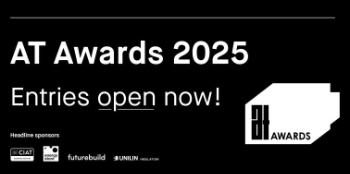Cost information
In the construction industry the term ‘cost’ generally refers to the amount that has to (or will have to) be paid to receive goods or services. Different types of cost include capital costs, construction costs, operational costs, whole-life costs, environmental costs, social costs and so on.
Cost information is an important element across several activities that are involved in cost engineering (the practice of managing costs involved on a construction project), such as cost control, budgeting, forecasting, estimating, investment appraisal and risk analysis. It is also used to help measure profit margins, value assets and make decisions.
The type of cost information will depend on the particular type of costs that are being managed.
In relation to construction costs, cost information can be used to help set prices, which are typically the actual cost plus a percentage to allow for profit.
In the context of estimating construction or capital costs, cost information should be aligned with the project budget and can be set out in cost plans. These are generally prepared by cost consultants (often quantity surveyors) and evolve through the life of the project, developing in detail and accuracy as more information becomes available about the nature of the design, and then actual prices are provided by specialist contractors, contractors and suppliers.
Types of cost plan include:
- Initial cost appraisal (studies of options prepared during the feasibility study stage).
- Elemental cost plan (prepared during the project brief stage and carried through to detailed design).
- Approximate quantities cost plan (from the end of detailed design through to tender).
- Pre-tender estimate (prepared alongside tender documentation).
- Tender pricing document (strictly speaking this is not a priced document, but is part of the tender documentation issued to the contractor for pricing).
- Contract sum (agreed with the contractor during the tender period and adjusted during the construction period).
- Contract sum analysis (a break down of the contract sum prepared by the contractor on design and build projects).
- Final account (agreed during the defects liability period).
For more information see: Cost plan.
Cost reporting is the process of providing a client (or other party) with information about the magnitude of a project’s predicted, or actual cost. This can be expressed either in absolute terms or as a variance compared to the project budget. Cost reports are typically prepared by a cost consultant (such as a quantity surveyor) and updated regularly (perhaps monthly), to keep the client informed and to help them and the project team control costs.
BCIS is the Building Cost Information Service of the Royal Institution of Chartered Surveyors (RICS). Cost and price information is collected by BCIS from across the UK construction industry, then collated, analysed, modelled, interpreted and made available to the industry to facilitate accurate cost planning.
For more information see: BCIS
NB The RIBA Plan of Work 2013 defines cost information as: 'All of the project costs, including the cost estimate and life cycle costs where required.'
[edit] Related articles on Designing Buildings Wiki
Featured articles and news
The Architectural Technology Awards
The AT Awards 2025 are open for entries!
ECA Blueprint for Electrification
The 'mosaic of interconnected challenges' and how to deliver the UK’s Transition to Clean Power.
Grenfell Tower Principal Contractor Award notice
Tower repair and maintenance contractor announced as demolition contractor.
Passivhaus social homes benefit from heat pump service
Sixteen new homes designed and built to achieve Passivhaus constructed in Dumfries & Galloway.
CABE Publishes Results of 2025 Building Control Survey
Concern over lack of understanding of how roles have changed since the introduction of the BSA 2022.
British Architectural Sculpture 1851-1951
A rich heritage of decorative and figurative sculpture. Book review.
A programme to tackle the lack of diversity.
Independent Building Control review panel
Five members of the newly established, Grenfell Tower Inquiry recommended, panel appointed.
Welsh Recharging Electrical Skills Charter progresses
ECA progressing on the ‘asks’ of the Recharging Electrical Skills Charter at the Senedd in Wales.
A brief history from 1890s to 2020s.
CIOB and CORBON combine forces
To elevate professional standards in Nigeria’s construction industry.
Amendment to the GB Energy Bill welcomed by ECA
Move prevents nationally-owned energy company from investing in solar panels produced by modern slavery.
Gregor Harvie argues that AI is state-sanctioned theft of IP.
Heat pumps, vehicle chargers and heating appliances must be sold with smart functionality.
Experimental AI housing target help for councils
Experimental AI could help councils meet housing targets by digitising records.
New-style degrees set for reformed ARB accreditation
Following the ARB Tomorrow's Architects competency outcomes for Architects.
BSRIA Occupant Wellbeing survey BOW
Occupant satisfaction and wellbeing tool inc. physical environment, indoor facilities, functionality and accessibility.
























